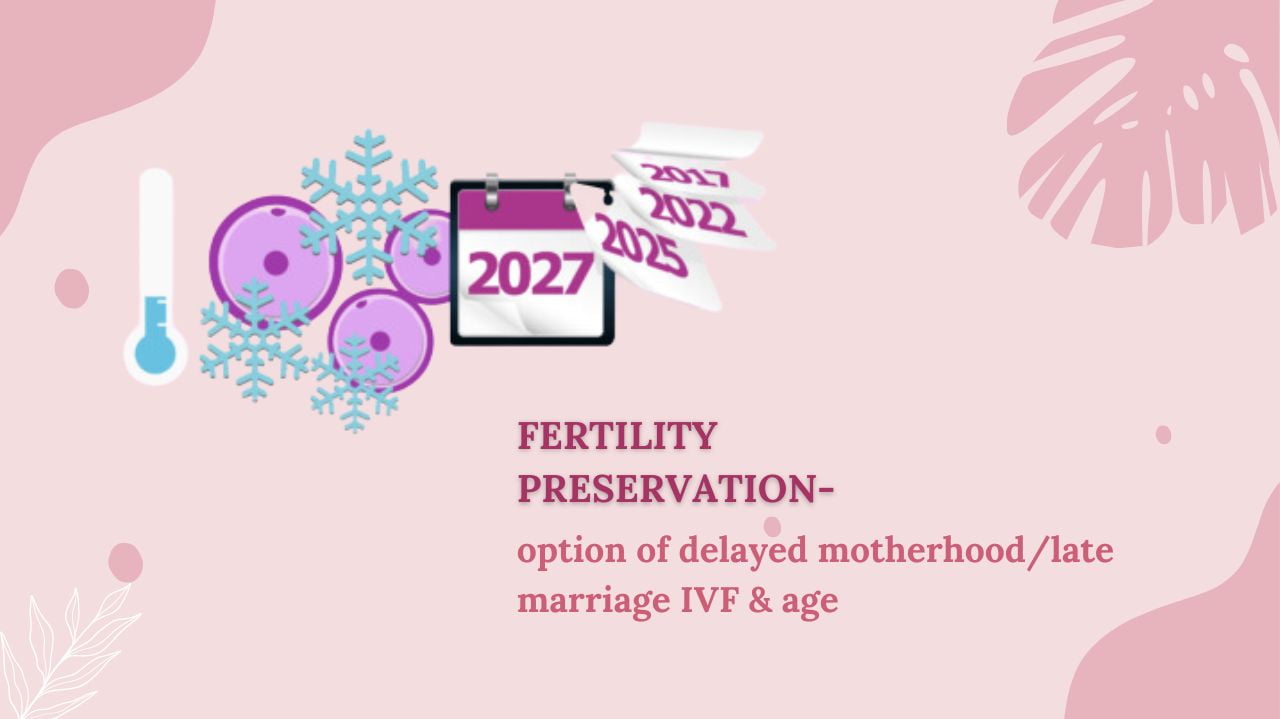



In the modern day, cultural norms are changing, and with them, people's ambitions and schedules. Postponed parenthood and postponed marriage are becoming increasingly popular, and this trend is being driven by factors such as evolving relationship dynamics, personal growth, and professional aspirations. The biological clock, on the other hand, does not change, causing fertility to decline gradually. For example, in vitro fertilisation (IVF) is a fertility preservation treatment that offers an innovative approach that empowers people to choose how they want to proceed with their reproductive lives.
The Evolution of Delayed Motherhood and Late Marriage
Traditionally, society expected women to marry young and initiate families. However, women are now prioritising their higher education, professional possibilities, and personal objectives over starting families. The current trend of emphasising personal and professional development has led to many late marriages. Due to the alteration in timeframes, more and more women and couples are debating starting a family later in life.
The Biological Clock and Fertility Challenges
Human biology is stable, despite changes in social mores and individual desires. Due to the quality and number of eggs continuously deteriorating as women age, their fertility gradually decreases. After 35, fertility declines and the risk of pregnancy issues increases. Delaying childbearing raises infertility risks, potentially requiring fertility treatment.
Empowering Choice Through Fertility Preservation
Methods of fertility preservation provide people with the chance to decide how many children they will have in the future. One such technique is egg freezing, which involves gathering, freezing, and storing a woman's eggs for later use. Preserving a woman's eggs when they are younger and more viable increases the likelihood of a healthy pregnancy later in life.
In Vitro Fertilization (IVF): Bridging the Gap
The practice of reproductive medicine has undergone a transformation thanks to in vitro fertilisation, or IVF. IVF involves retrieving eggs, fertilizing them with sperm in a lab, and transferring the embryos to the uterus, offering hope and choices for delayed parenting.
For women who have frozen their eggs earlier in life, IVF may be a good alternative. Individuals can lessen the effects of age-related loss in fertility and improve the likelihood of a successful pregnancy by using frozen eggs. Preimplantation genetic testing, which checks embryos for genetic flaws before implantation and increases the likelihood of a healthy baby, is another feature of IVF.
Considerations and Realities
IVF and fertility preservation are attractive choices, but they have drawbacks. IVF and egg preservation can be physically and emotionally taxing procedures. Additionally, as results depend on a number of variables, including the quality of the eggs and general health, they could not always result in a successful pregnancy. While numerous possibilities exist, individuals must approach them realistically, recognizing that no strategy can completely mitigate age-related fertility decline challenges.
Ethical and Societal Implications
IVF and fertility preservation are becoming more popular, which presents ethical and societal concerns. Detractors argue that these technologies may lead individuals to postpone childbearing without fully understanding the risks and fostering unrealistic expectations. Furthermore, different people can access these choices due to different financial limitations. Balancing the empowerment of choice in social discourse with the requirement for thorough education and awareness must be done.
IVF and fertility preservation techniques are transformative tools adapting to the evolving dynamics of postponed parenting and delayed marriages. These choices enable people to bridge the gap between their personal objectives and biological reality by empowering them to make knowledgeable decisions about their reproductive journeys. People will need to have open communication and thorough education to ensure they are prepared for the decisions that lie ahead as we navigate this exciting era of wider options.